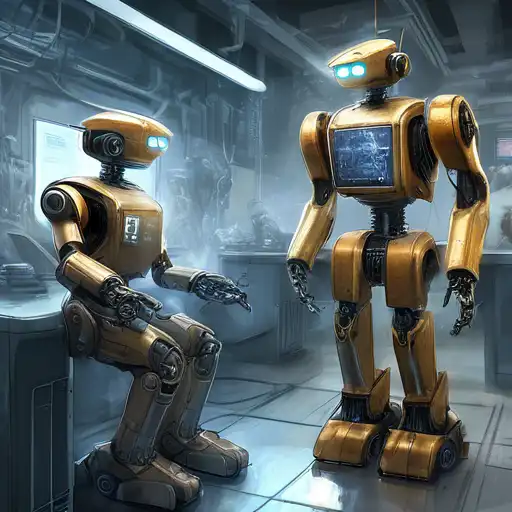The Moral Dilemmas of Autonomous Robots
In the rapidly evolving world of technology, autonomous robots represent a pinnacle of human achievement. These self-operating machines, powered by artificial intelligence (AI), are increasingly becoming a part of our daily lives. From self-driving cars to robotic assistants, their presence raises significant ethical questions that society must address.
Understanding Autonomous Robotics
Autonomous robots are designed to perform tasks without human intervention. They make decisions based on algorithms and data, which can lead to outcomes that were not explicitly programmed by humans. This level of independence brings forth a myriad of ethical considerations, especially in scenarios where robots interact with humans or make life-altering decisions.
Key Ethical Concerns
The ethics of autonomous robots can be broken down into several key areas:
- Accountability: Who is responsible when an autonomous robot makes a mistake or causes harm?
- Privacy: How do we ensure that robots respect human privacy, especially when they are equipped with surveillance capabilities?
- Decision-making: On what basis should robots make decisions, especially in life-and-death situations?
- Employment: What is the impact of robots on human jobs, and how can we mitigate negative effects?
Accountability in the Age of Autonomy
One of the most pressing issues is determining accountability. Unlike traditional machines, autonomous robots can make decisions that their creators might not have anticipated. This raises questions about legal liability and moral responsibility. Should the manufacturer, the programmer, or the user be held accountable for the robot's actions?
Privacy and Surveillance
As robots become more integrated into public and private spaces, concerns about privacy and surveillance grow. Robots equipped with cameras and sensors can collect vast amounts of data, raising questions about who has access to this information and how it is used.
Ethical Decision-Making
Perhaps the most complex issue is how autonomous robots should make ethical decisions. Programming a robot to make moral judgments is fraught with challenges, as ethics can be subjective and context-dependent. The famous trolley problem is often cited in discussions about machine ethics, highlighting the difficulties in programming robots to make life-and-death decisions.
The Future of Work
The rise of autonomous robots also has significant implications for the workforce. While robots can increase efficiency and reduce human error, they also pose a threat to jobs. It's essential to find a balance between leveraging robotic technology and ensuring that humans remain employed and valued in the workforce.
Conclusion
The ethics of autonomous robots is a complex and multifaceted issue that requires careful consideration from technologists, ethicists, policymakers, and society at large. As we continue to integrate these machines into our lives, it's crucial to address these ethical concerns to ensure a future where technology serves humanity's best interests.
For further reading on the impact of technology on society, explore our article on AI and Society.
